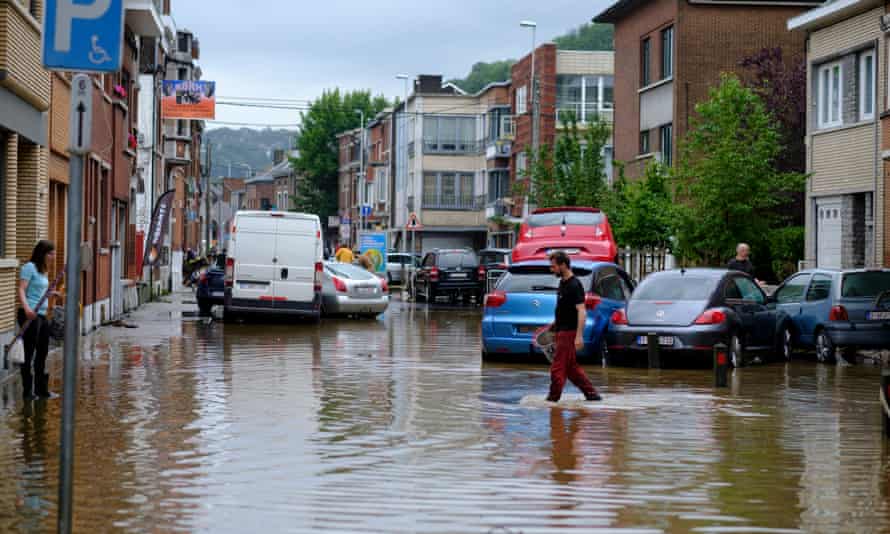Restoring our lives to normality after Covid is not the solution, it’s the problem

As Australians have been preoccupied by coronavirus, a wider environmental calamity has unfurled. The emergency isn’t over, it’s only just beginning

Build back better. In the early days of Covid-19, that slogan rang out everywhere: a pledge to harness disruption for positive change.
For a time, everything felt possible. There are no atheists in foxholes and, we discovered, no free marketeers in a pandemic, as even the most conservative governments pledged to spend on a scale previously unimaginable.
With the public purse unexpectedly wide open, a new political horizon briefly became visible.
But the rapid development of coronavirus vaccines dissipated whatever momentum might have been building. Science had, it seemed, come to the rescue, restoring normality with a few quick jabs. The economy surged; governments looked at the innovations of 2020 like repentant drinkers queasily recalling the previous night’s revels. The binge was over, best forgotten by responsible politicians pledging renewed economic sobriety.
Crisis averted. Nothing to see here.
Except, of course, there was, as the renewed lockdown has shown.
The desultory vaccine rollout in Australia proves that, as an administrator, Scott Morrison makes a good curry. Yet even without his government’s remarkable ineptitude, the emergence of the Delta variant was, in a sense, inevitable.
Viruses mutate – that’s their whole point. Even if we control Delta, new diseases will emerge, either different strains of Covid or, God help us, entirely new viruses.
Over the last decades, outbreaks of zoonotic infections like coronavirus have become more and more common. Scientists tell us the encroachment of cities on once pristine environments increases the chances of previously unknown viruses finding a human host. We might not know the exact cause of this particular outbreak but we’ve been repeatedly warned that ongoing deforestation and uncontrolled urbanism create the conditions for the spread of pathogens to which we have no resistance.
Covid-19 only kills a small proportion of those it infects – and still the global death toll from the pandemic stands at more than 4 million.
What happens if the next virus we release is more like Ebola, with a morbidity rate of over 60%?
To put it another way, renewed normality isn’t the solution – it’s the problem.
If, in a post-vaccine world, we return to our old, destructive ways, we’re simply preparing the next disaster.
There is, after all, a term for doing the same thing over and over again and expecting different results – and that insanity doesn’t merely pertain to Covid.
Look at the world we’re making.
While Australians have been preoccupied by coronavirus, a wider environmental calamity has unfurled over the planet, manifesting in various ways in different nations.
In Oregon and California, baby birds have been throwing themselves out of their nests, unable to cope with an unprecedented heatwave. As North America swelters and burns, floods sweep through towns across western Europe, while a deforested Amazon jungle now emits more carbon than it absorbs.
In Queensland, politicians have been exulting about the prospects of hosting the 2032 Olympic Games. The federal government’s 2021 Intergenerational Report frets about rates of economic productivity four decades from now.
Yet the leaders who can plan sporting events and business strategies years into the future seem incapable of grasping the desperate message from the world’s scientists: simply, we cannot continue in the same old way without unleashing unimaginable catastrophes. In the words of a leaked draft from the Intergovernmental Panel on Climate Change: “The worst is yet to come, affecting our children’s and grandchildren’s lives much more than our own.”
That’s why, even in lockdown doldrums, we need to rekindle a belief in the possibilities for change.
Covid has shown that people can adapt. None of us thought that we’d become accustomed to wearing masks, to teleconferencing and to working from home. We put up with lockdown; we altered the way we lived – because that was what the times required.
We know we can change. We’ve shown it.
The early phases of the pandemic entirely upended the political status quo. Today, we need more of that – and urgently.
“If there is any one thing that global warming has made perfectly clear,” explained the Indian novelist Amitav Ghosh back in 2016, “is that to think about the world as it is amounts to a formula for collective suicide”.
In 2021, that’s even more undeniable.
The emergency isn’t over. It’s only just beginning.
-
Jeff Sparrow is a Guardian Australia columnist